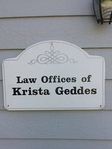Filter by
What a Consumer Protection Lawyer Can Do for You
A consumer protection lawyer specializes in safeguarding individuals from unfair, deceptive, or fraudulent business practices. These lawyers advocate for the rights of consumers in disputes with businesses, helping clients recover damages related to fraud, defective products, false advertising, or violation of consumer protection laws. They work to enforce laws that prevent businesses from taking advantage of consumers and ensure that businesses adhere to fair practices.
Whether you’ve been the victim of a scam, sold a faulty product, or misled by false advertising, a consumer protection lawyer can help you navigate legal options and pursue justice.
When Should I Hire a Consumer Protection Lawyer?
You should consider hiring a consumer protection lawyer when you’ve encountered unfair or illegal business practices and need legal assistance to resolve the situation. Common scenarios include:
- Fraud or deceptive business practices: If a company misled you into purchasing a product or service under false pretenses, a lawyer can help you seek compensation.
- Defective products: If you purchased a product that was unsafe or defective and caused harm, a lawyer can help you file a product liability claim.
- False advertising or unfair pricing: A lawyer can assist if you were misled by deceptive advertising or charged for services or products in a way that violates consumer laws.
- Debt collection harassment: If you're being harassed by debt collectors or are facing illegal debt collection practices, a consumer protection lawyer can enforce your rights under the Fair Debt Collection Practices Act (FDCPA).
- Credit report issues: If errors on your credit report are affecting your financial standing, a lawyer can help you resolve disputes with credit reporting agencies or creditors under the Fair Credit Reporting Act (FCRA).
- Predatory lending practices: If you've been subjected to unfair loan terms or practices by payday lenders or mortgage companies, a lawyer can help you challenge the loan and seek a resolution.
- Data breaches or identity theft: If your personal information was compromised due to a company’s failure to protect your data, a lawyer can help you recover damages related to the breach.
What Does a Consumer Protection Lawyer Do?
A consumer protection lawyer provides a wide range of services to help protect consumers' rights and seek compensation for harms caused by businesses. Their role may include:
- Filing lawsuits: Representing clients in lawsuits against businesses that have violated consumer protection laws, whether through fraud, deceptive practices, or negligence.
- Negotiating settlements: Working with businesses or their insurers to negotiate fair compensation for damages caused by unfair practices or defective products.
- Pursuing class action lawsuits: When a company harms multiple consumers, a lawyer can represent a group of plaintiffs in a class action lawsuit, seeking collective damages.
- Advising on consumer rights: Helping clients understand their rights under various consumer protection laws and advising on the best course of action.
- Handling product liability claims: Representing clients who have been injured by defective products and holding manufacturers or retailers accountable for the harm caused.
- Defending against debt collection harassment: Enforcing the rights of consumers under the FDCPA and other laws that protect individuals from abusive or unlawful debt collection tactics.
- Resolving credit report disputes: Helping clients correct errors on their credit reports that may be causing financial harm or affecting their creditworthiness.
How Are Consumer Protection Lawyers Paid?
Consumer protection lawyers typically use different fee structures depending on the complexity of the case and the type of legal work required. Common payment methods include:
- Contingency fee: For many consumer protection cases, such as class actions or product liability claims, lawyers may work on a contingency fee basis. This means they only get paid if they win or settle the case, taking a percentage (typically between 25% and 40%) of the awarded amount.
- Hourly rate: For more complex cases or ongoing legal disputes, some lawyers charge by the hour. Hourly rates can range from $150 to $500 or more, depending on the lawyer’s experience and location.
- Flat fee: For specific services, such as reviewing a contract or filing a small claim, a lawyer may charge a flat fee that covers all the necessary legal work.
- Retainer fee: For clients needing ongoing legal assistance, some lawyers may charge a retainer fee, which is an upfront payment that is billed against as the lawyer works on the case.
It’s important to discuss fees upfront with your lawyer to understand how you’ll be charged and to avoid unexpected costs.
How Much Does a Consumer Protection Lawyer Cost?
The cost of hiring a consumer protection lawyer depends on the complexity of the case, the lawyer’s experience, and the type of legal service required. General cost estimates include:
- Contingency fee cases: For cases handled on a contingency basis, the lawyer typically takes between 25% and 40% of any settlement or damages awarded.
- Hourly rates: Hourly rates for consumer protection lawyers generally range from $150 to $500, with higher rates for more experienced attorneys or cases involving complex legal issues.
- Flat fees: For specific services like contract reviews or handling a small claims case, flat fees may range from $500 to $2,000, depending on the scope of work.
- Class actions: In class action cases, fees are often paid out of the settlement or damages awarded, and individual plaintiffs usually do not have to pay upfront.
Make sure to ask for a clear estimate of costs during your initial consultation to avoid surprises and to understand how much you can expect to pay.
Top Questions to Ask a Consumer Protection Lawyer
Before hiring a consumer protection lawyer, it’s important to ask questions to ensure they have the experience and skills to handle your case effectively. Key questions include:
-
What experience do you have with consumer protection law?
Ensure the lawyer has specific experience handling cases like yours, whether it involves product liability, fraud, or debt collection issues. -
How do you charge for your services?
Clarify whether the lawyer charges by the hour, a flat fee, or a contingency fee, and ask for an estimate of the total cost of your case. -
What is the likelihood of success for my case?
Ask the lawyer for an honest assessment of your case and what outcome you can reasonably expect. -
Have you handled cases like mine before?
Make sure the lawyer has experience dealing with similar legal issues, whether it’s credit report disputes, data breaches, or defective products. -
What is the timeline for resolving my case?
While it can be difficult to predict exact timelines, the lawyer should give you a general idea of how long your case may take to resolve. -
Will you handle my case personally?
In larger firms, junior attorneys or paralegals may handle parts of your case, so it’s important to know who will be working on your claim.
How to Check the Credibility of a Consumer Protection Lawyer
To ensure you are hiring a reputable consumer protection lawyer, take the following steps to verify their credentials and track record:
- Verify their bar status: Check with your state bar association to confirm that the lawyer is licensed to practice and has no history of disciplinary actions.
- Check for experience in consumer protection: Review the lawyer’s website or professional profile to confirm they specialize in consumer protection law and have handled cases similar to yours.
- Read client reviews and testimonials: Look for client reviews on platforms like Avvo, Martindale-Hubbell, or Google to see what previous clients have said about the lawyer’s professionalism and success rate.
- Ask for references: A credible lawyer should be willing to provide references from past clients who can speak to their ability to handle consumer protection cases.
- Look for industry affiliations: Membership in organizations like the National Association of Consumer Advocates (NACA) can indicate that the lawyer is committed to protecting consumer rights.
What Should I Prepare for My First Consultation?
To get the most out of your first consultation with a consumer protection lawyer, come prepared with all relevant documents and information. Here’s what you should bring:
- Details of the product or service in question: Bring any purchase receipts, warranties, or contracts related to the product or service involved in your claim.
- Documentation of your complaint: Provide evidence of your complaint, such as email exchanges with the company, photos of a defective product, or a timeline of events related to the dispute.
- Communication with the business or debt collector: If you’ve communicated with the business or debt collector, bring copies of letters, emails, or phone logs.
- List of questions: Write down any questions you have about the legal process, costs, and potential outcomes for your case.
- Information on damages: Be prepared to discuss any financial losses or harm you’ve suffered as a result of the unfair business practices, including medical bills, lost wages, or emotional distress.
By preparing thoroughly for your consultation, you can help the lawyer understand your situation more effectively and get the best possible legal advice on how to proceed with your case.








